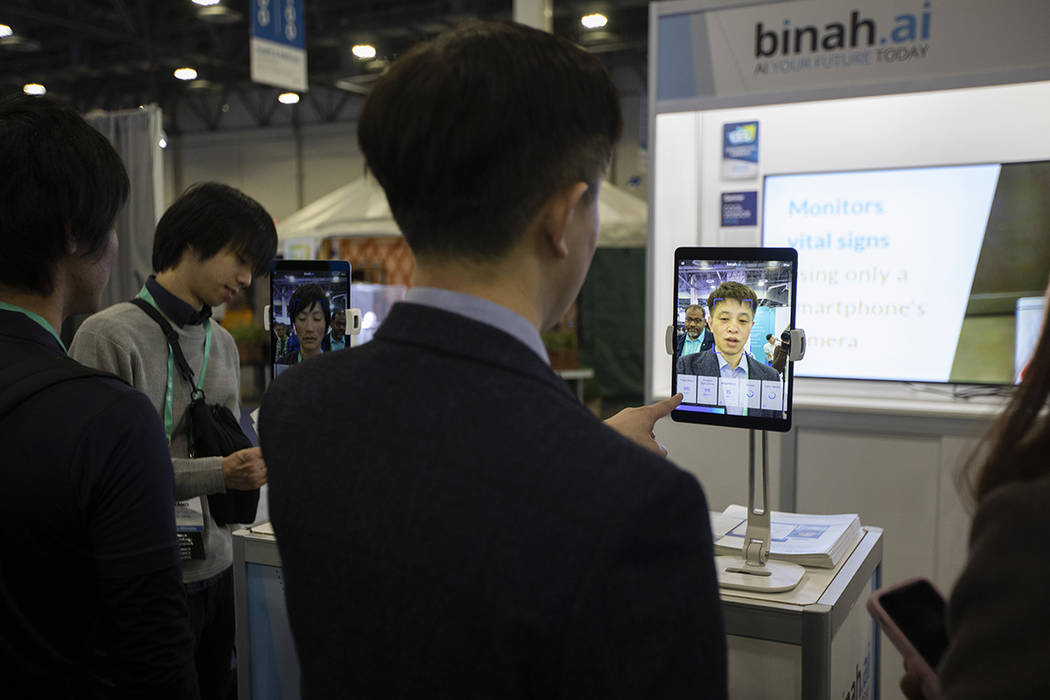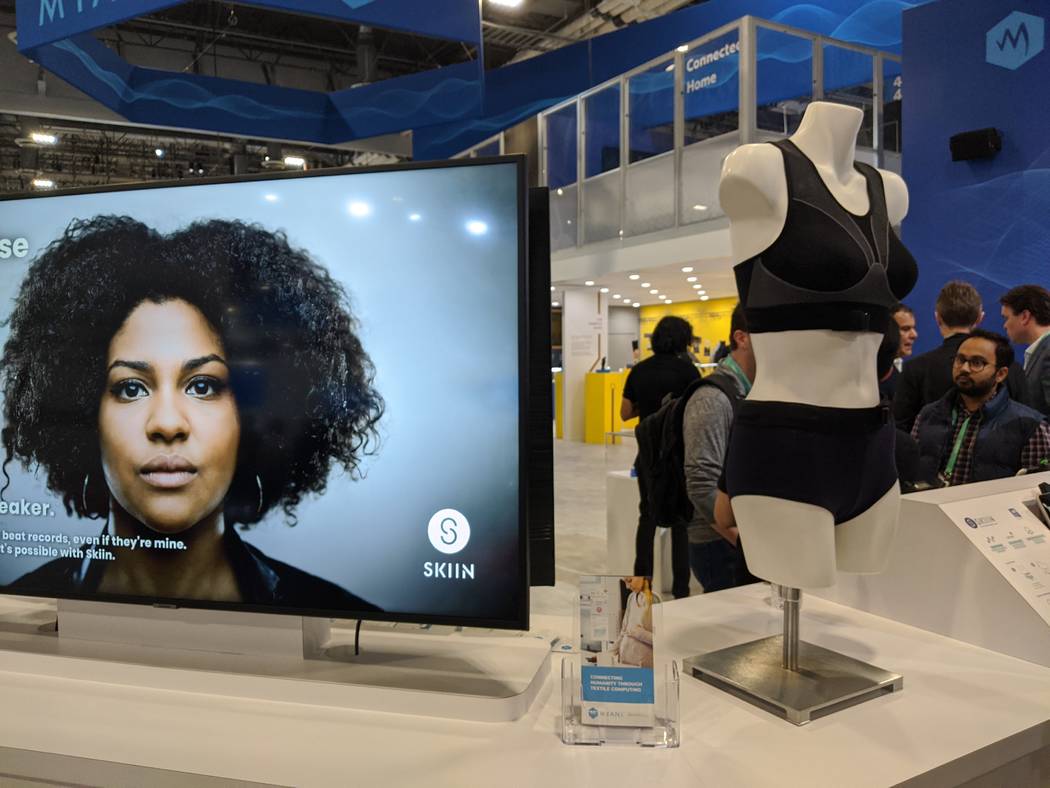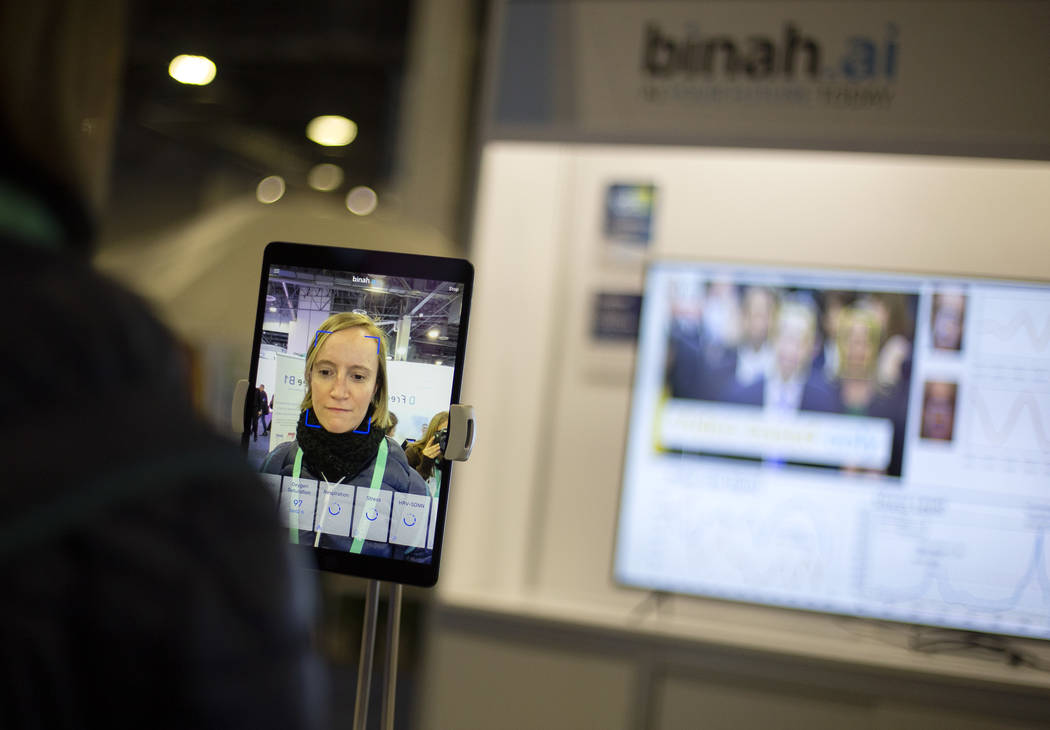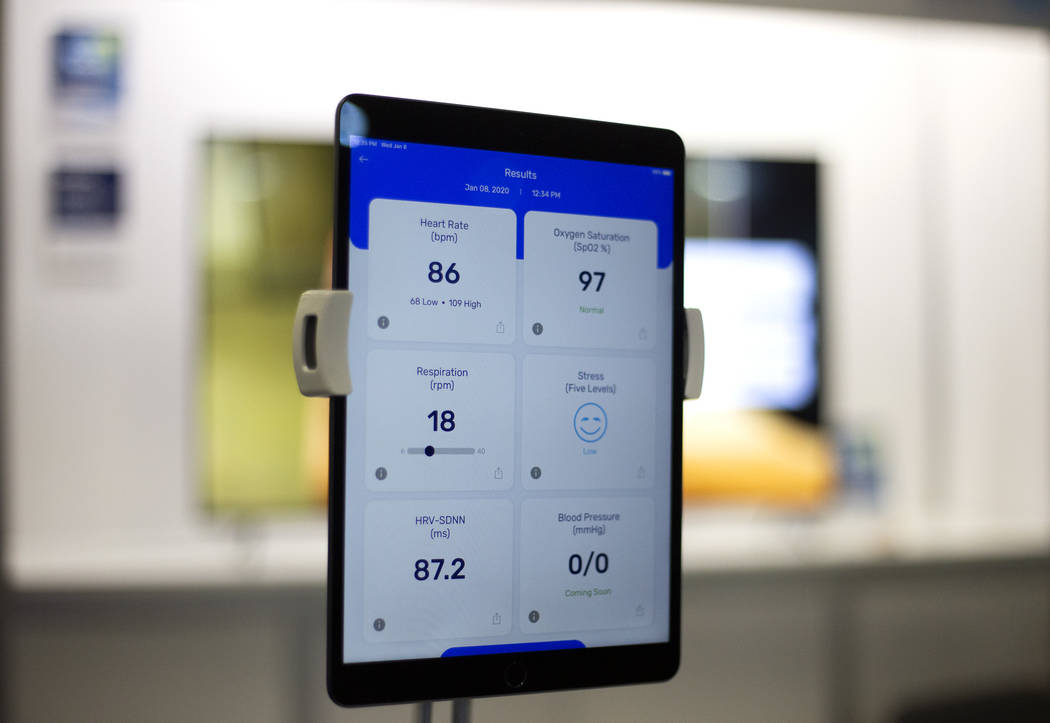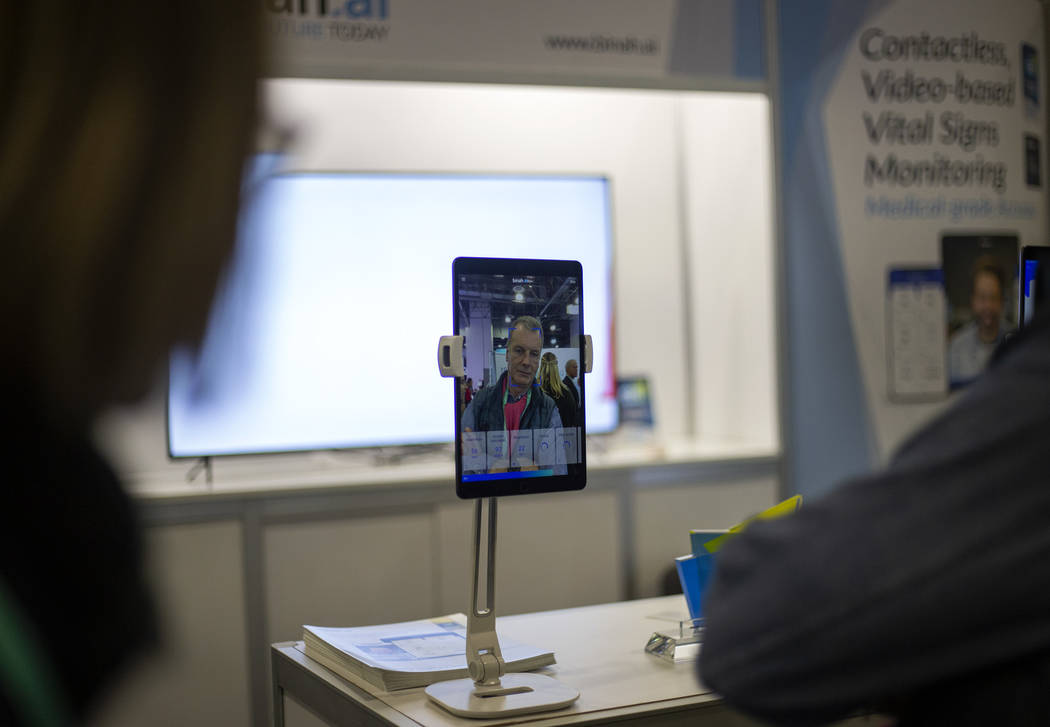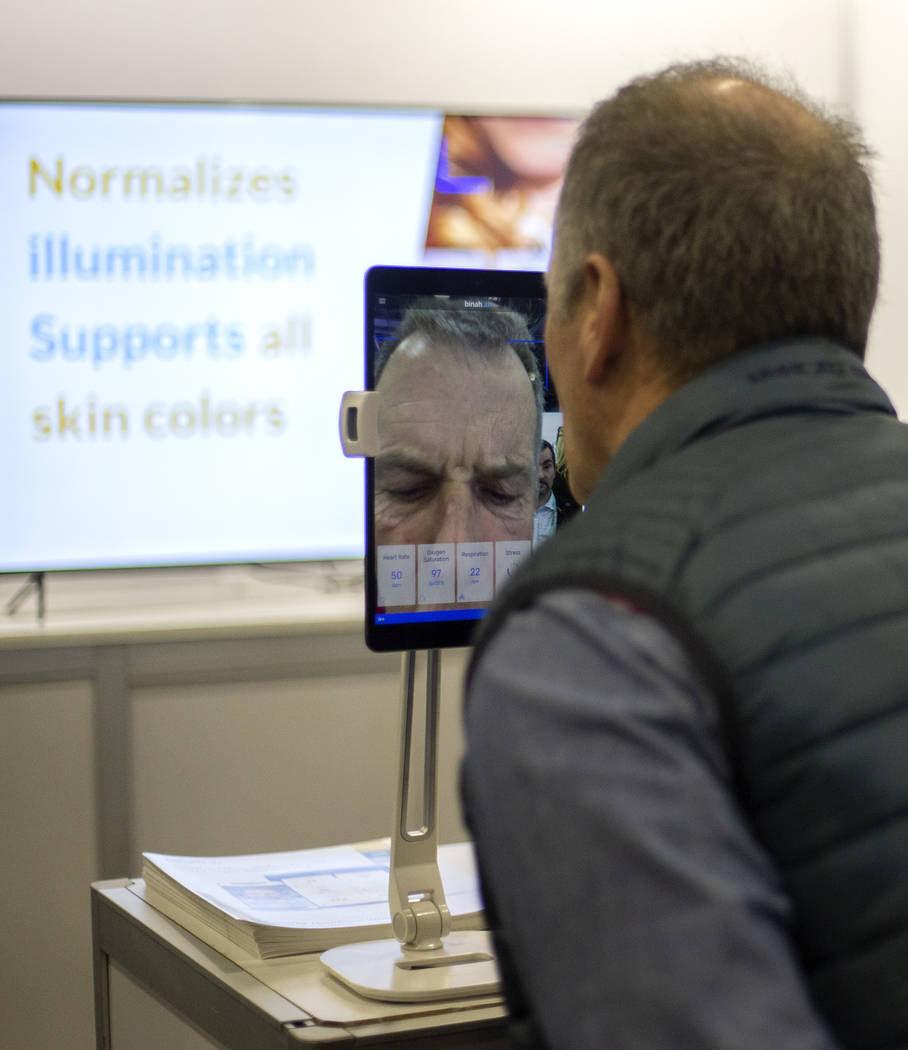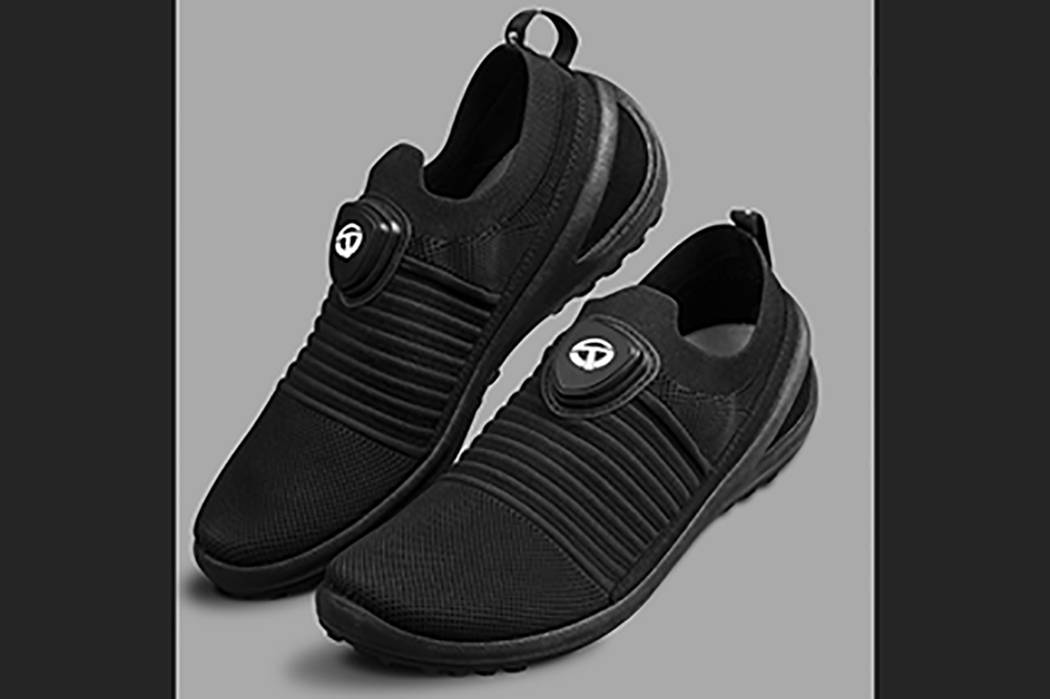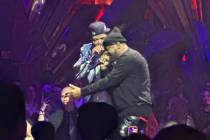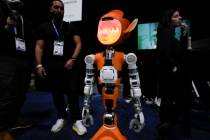Digital diabetes dog, underwear sensors take vital signs at CES
It started with a dog.
A yellow lab named Wiley, to be more exact, purchased as a hunting dog from a kennel in Mississippi that also trains service dogs to sniff out peaks and dips in a diabetic’s blood sugar.
“I thought that was fascinating,” said Wiley’s owner, engineer Arnar Thors. And he wondered, “Why can’t we do the same thing” that the diabetic alert dog does, only using technology?
Thus was born AerBetic, the digital diabetes dog, one of many products designed to monitor vital signs on display at tech trade show CES in Las Vegas this week. Health tech companies demonstrated how they are using everything from a video of a person’s face to their underwear to their shoes to their breath — as is the case with the digital diabetes dog — to do this monitoring.
Digital diabetes dog
AerBetic, a non-invasive item that can be worn like a wristwatch, contains nano-gas sensors that check blood sugar levels using a person’s exhaled breath.
“When a diabetic episode is occurring, the skin and breath emit certain gases,” according to the company’s website. “Dogs have been in service helping diabetics since 2003. These animals are trained to use their keen sense of smell to detect those gases in diabetics and alert them to a possible episode.
“AerBetic uses state-of-the-art nanotechnology in very small air sensors that can detect these same gases at the parts per billion level.”
The company is still adjusting the formula for which gases it’s targeting and fine-tuning sensors to avoid false positives, said Thors, CEO of Alabama-based AerBetic.
The app-based product can send alerts to caregivers of the diabetic when it senses a potential health issue
Thors said he expected the product, a CES 2020 Innovation Awards Honoree, to be on the market within two years at a cost of about $500 — far less than the thousands of dollars it costs for a flesh-and-blood diabetes alert dog.
Read my face
Another CES innovation honoree, Israel-based Binah.ai, showcased an app for monitoring vital signs through video of a person’s face.
The product is designed to “extract vital signs within seconds via video of a person’s face through the camera on devices including smartphones, tablets or personal computers,” a news release from the company states.
The technology goes a step further than smartwatches that use sensors to detect changes in light absorption as a way to measure heart rate. This product also measures light, but remotely.
The app measures “light intensity reflection off the cheekbone,” said Binah.ai Vice President Sam Friedman.
It also can measure the user’s heart rate within seven seconds, oxygen saturation within 10 seconds, respiration rate within 30 seconds and heart rate variability within 45 seconds. It can also assess mental stress within 90 seconds.
The app can be used in telehealth, preventive medicine, remote patient monitoring, life insurance and other uses, according to the company.
Sompo, one of Japan’s largest insurance companies, was showcasing at CES how it was using the app to serve clients, Friedman said.
Although the technology already is in use, Friedman acknowledged its applications can seem “right out of ‘Star Trek.’”
Smart shoes and undies
Other companies with products for monitoring vital signs included startup TacSense, which has developed FootWARE, a smart shoe for measuring “heart rate, respiratory rate, blood pressure, emotion, stress level and moving patterns.”
Sue Bin Lee, business development manager for the California-based company, described the product, another CES innovation honoree, as like a “fitbit for the feet.”
The app-based product can share data with a physician or caregiver, Lee said from the TacSense display booth, which also showed a hard hat version of the technology.
Another app-based product and CES innovation honoree, Skiin by Canada-based Myant, has sensors for monitoring vital signs in the bands of its underwear and bras. Skiin uses “machine learning on the Myant platform to provide predictive insights via the app to help you and your loved ones take ownership over your health,” according to a company brochure.
Myant Vice President Frank Florio said the technology allows its users to monitor their heart health on a continuous basis, allowing early detection of potential issues.
After all, he asked, “How many diagnoses are not caught in time?”
Data question
Access to personal health data can be empowering to consumers, according to speakers at a Digital Health Summit that coincided with the trade show.
“The power shift that technology is creating for consumers is, I think, very, very exciting,” said Pamela Spence, global health sciences and wellness industry leader with professional services firm EY and moderator of a CES Digital Health Summit panel discussion titled “2020: Unlocking Powerful Data to Personalize Care.”
But Phillip Dunkelberger, president and CEO at Nok Nok Labs, who spoke on “Privacy and Ethics: A New Complex Frontier,” noted that health data is “the most sensitive data you can have about yourself,” and with it come “ethical, moral and financial considerations.”
Data security and privacy are key, he said, noting that HIPAA — the Health Insurance Portability and Accountability Act — does not take into account “modern computing.”
“Data in and of itself,” he cautioned, “does not solve the problem.”
Contact Mary Hynes at mhynes@reviewjournal.com or 702-383-0336. Follow @MaryHynes1 on Twitter.



